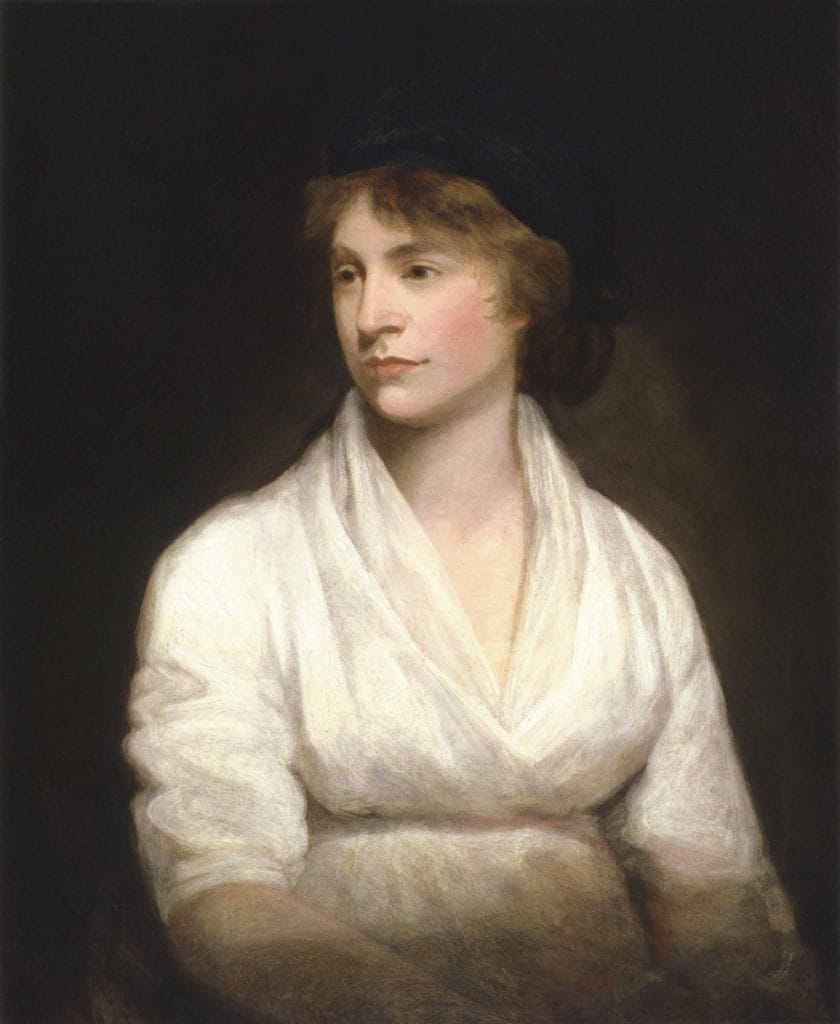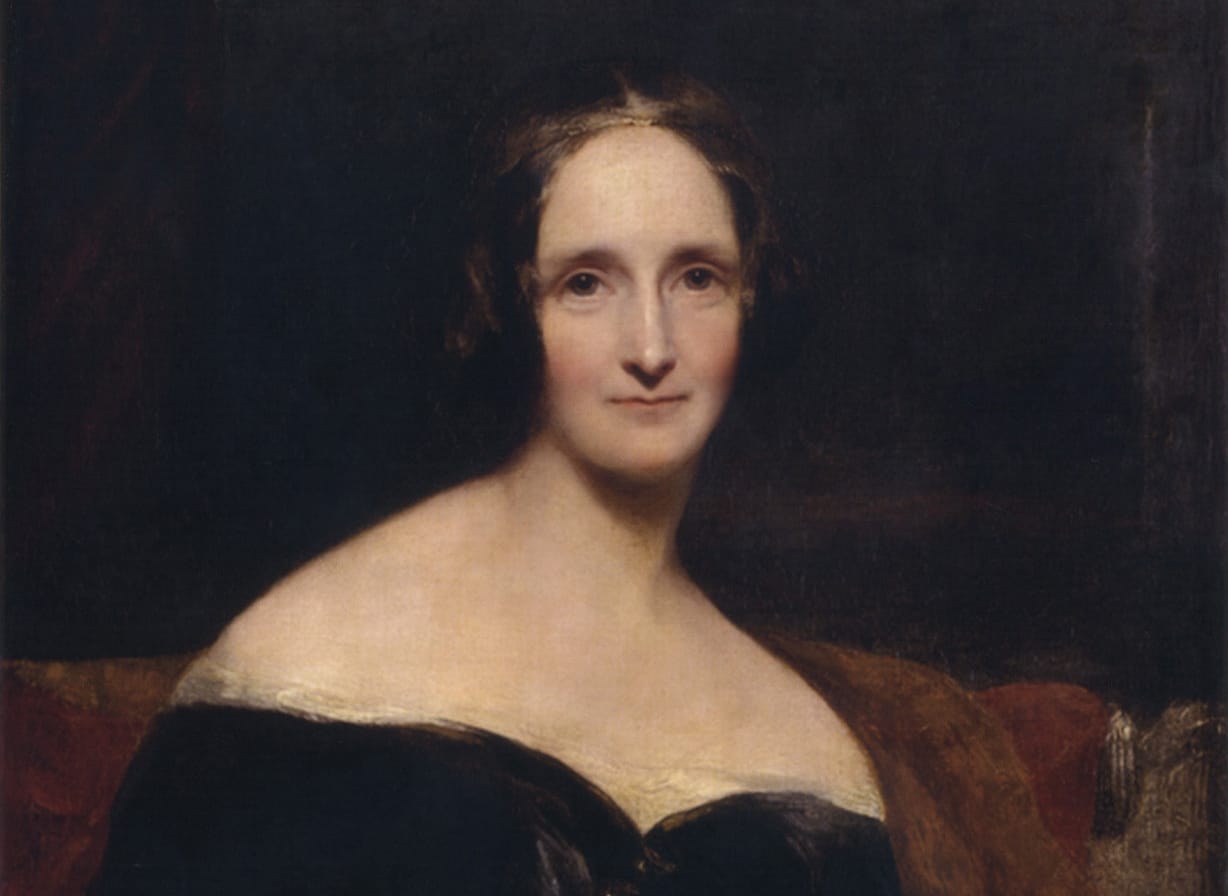This quote, attributed to the English writer and creator of the Frankenstein character, has been widely circulated on the Internet. We decided to check if she said anything like that.
Find this phrase possible on many websites With selections quotes And aphorisms. There is a second one option translation of this statements, also quite common in Runet: “A person chooses evil not because it is evil; he mistakes it for the happiness he seeks.” There is also a quote in social networks, and on blogging platforms. This phrase is spoken by the main character of the series “Wednesday", also attributing it to Shelley. The statement was used as an epigraph for one of the episodes by the creators of the series “Criminal Minds" - with the same attribution.
"Verified" studied all digitally available texts were authored by the writer Mary Shelley and did not find such a quote either in her works or in her letters. In English-language sources, the verifiable statement sounds like this: “No man chooses evil because it is evil; he only mistakes it for happiness, the good he seeks.” We managed to find it in the book "In defense of human rights", published in 1790 - seven years before Shelley was born. Its author is Mary Wollstonecraft, an 18th-century British writer and philosopher known for her work on feminist issues. In addition, she was the mother of the same Mary Shelley, to which the quote is usually attributed.
The author of Frankenstein's maiden name was Mary Wollstonecraft Godwin. Marrying a poet Percy Bysshe Shelley, she changed her father's surname (Godwin) to her husband's surname and became Mary Wollstonecraft Shelley. When signing her works, the writer omitted the surname Wollstonecraft, inherited from her mother. It was probably because of the confusion with names that at some point the quote began to be attributed to her.

According to the project The Quote Investigator, the misattribution likely began to spread due to an inaccuracy in the 1980 edition of Bartlett's Familiar Quotations. This is a well-known reference book of popular expressions in the United States, first collected in the mid-19th century. John Bartlett. It was reprinted many times and updated with new quotes both during Bartlett’s lifetime and after his death (the latter at the moment, 19th edition was released in 2022). In that same 1980 edition, the collection included the quotation we were checking with the signature “Mary Wollstonecraft Godwin.” At the same time, it was indicated that the quote was taken from the work “A Vindication of the Rights of Man,” and the years of life of Mary Shelley’s mother were indicated correctly. That is, probably, the one who included this phrase in the reference book understood who he was talking about, but for some reason added the clarification “Godwin,” although it was not customary to call the real author of the statement by his husband’s last name. This could mislead less knowledgeable readers, who might think that we are talking about Mary Shelley, for some reason listed under her maiden name.
The quote was widely circulated as a statement by the creator of Frankenstein already in the 21st century. For example, in 2013 she appeared in the collection Quotation for the Fast Lane, compiled by Richard Pound, who, according to the annotation, spent half his life collecting various quotations.
Although Mary Wollstonecraft was the author of the aphorism in the form we know, the idea itself was found in the ancient Greek philosopher Epictetus. In English translation a collection of his thoughts, compiled by a student of the thinker Arrian, the quote is: “The soul never chooses evil, considered as evil, but under the disguise and pretence of some good.” Russian historian of ancient culture Andrey Tyzhov translated the same fragment is a little different, but a similar thought can still be traced: “We will call our soul the culprit, but not of evil, for nothing chooses evil as such, but of an imaginary good that hides within itself the evil that we inevitably receive along with the imaginary good.”
Thus, the quote about a person’s choice of evil does not belong to Mary Shelley, but to her mother, Mary Wollstonecraft, although similar ideas were expressed in Antiquity. The statement began to be mistakenly attributed to the author of Frankenstein, apparently due to confusion with the names of mother and daughter: before her marriage, Shelley's name was the same as her mother's name would have been if she had used her husband's surname - Mary Wollstonecraft Godwin.
Cover image: Mary Wollstonecraft Shelley. Richard Rothwell, Public domain, via Wikimedia Commons
Incorrect quote attribution
Read on the topic:
- Is it true that Mark Twain is the author of the phrase about the three types of lies?
- Is it true that Robert Sheckley wrote a quote about information warfare?
- Is it true that Leo Tolstoy is the author of the aphorism “Patriotism is the last refuge of a scoundrel”?
If you find a spelling or grammatical error, please let us know by highlighting the error text and clicking Ctrl+Enter.






